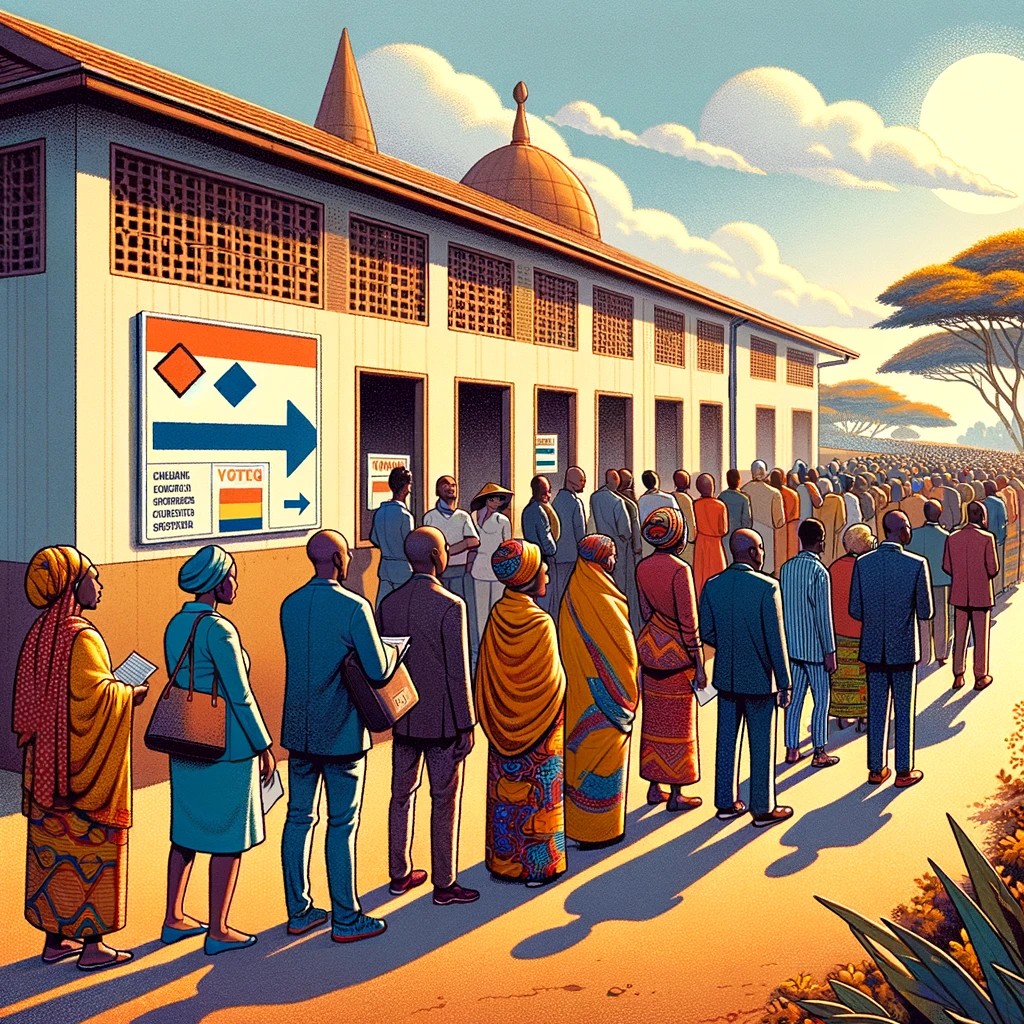The year 2024 witnesses a staggering number of over 70 elections scheduled globally, with a significant portion of them, around 26, set to take place in Africa. These elections encompass a diverse range from presidential to local government elections, providing a crucial opportunity for over half of the world’s population to exercise their voting rights.
However, artificial intelligence (AI) substantially threatens these democratic processes, particularly in Africa. The voting populace in many African nations is not adequately informed about the potential dangers associated with AI in elections. Moreover, regulatory frameworks for governing AI’s role in electoral processes are still lacking.
Africa’s preparedness and soft laws
Despite these challenges, Africa is not entirely unprepared to address the AI threat. While continental guidelines are absent, many African countries have laid the foundation for regulating AI in elections through “soft laws,” including declarations and guiding principles. The 2002 Declaration on the Principles Governing Democratic Elections in Africa, established by the Organisation of African Unity, sets crucial principles such as impartial electoral bodies and respect for human rights and the rule of law. These principles can be both positively and negatively affected by the use of AI.
Building on this foundation, the AU’s 2007 African Charter on Democracy, Elections, and Governance includes provisions related to technology’s role in governance. While it encourages information technology to advance political, economic, and social development, it lacks specific details on how technology, including AI, should be employed in elections.
Critics and ethical framework
Critics argue that the charter’s lack of specificity leaves it powerless to regulate recent AI innovations such as micro-targeted political messaging. Nevertheless, the charter’s broad principles, which oppose discrimination and call for transparent, impartial processes, still provide an ethical framework applicable to AI.
Despite these limitations, individual African nations have taken steps to govern AI themselves. Many have introduced policies related to data protection, cybersecurity, and e-governance. Data protection laws regulating how personal data, including voters’ information, can be processed are particularly relevant to AI’s use and development. To date, 35 African countries have enacted data protection laws, with three others in the draft stage. This expanding legal ecosystem allows AI control, even without binding continental standards.
AU’s AI governance efforts
Simultaneously, the African Union (AU) is intensifying efforts to establish a comprehensive AI governance regime. The draft AU-AI continental strategy seeks to increase public awareness of AI’s societal impacts and regulate the development of accountable AI systems. The AU’s working group on AI plans further steps to govern AI on the continent.
With both grassroots progress and high-level plans underway, Africa is making promising strides toward managing the potential of AI. However, much work remains as malicious actors may seek to exploit AI to undermine the continent’s democratic aspirations.
Recommendations for safeguarding democracy
To strengthen Africa’s elections in 2024 and beyond, AU member states should urgently ratify and implement the core principles of transparency, impartiality, and respect for human rights outlined in the African Charter on Democracy, Elections, and Governance. Furthermore, the AU must establish binding guidelines specifying how AI can and cannot be used in electoral processes.
These guidelines should mandate transparency in AI systems used for political messaging and strictly limit micro-targeting to prevent manipulative personalization. Robust audits must assess AI tools for bias that could disenfranchise women, minorities, and other vulnerable groups. Electoral bodies should create specialized oversight capacities to monitor AI activities, aided by civil society watchdogs. Given the establishment of data protection authorities in most African countries, this function might be delegated to them.
Land a High-Paying Web3 Job in 90 Days: The Ultimate Roadmap
